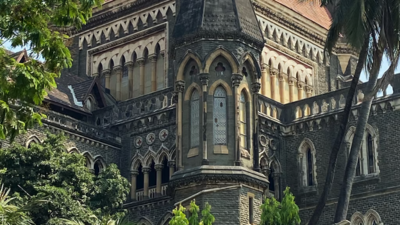The Bombay High Court on Monday granted anticipatory bail to Waman Barku Mhatre, a leader of the Shiv Sena (Shinde faction), who was accused of making derogatory remarks against a woman journalist from the Buddhist community during her coverage of a protest related to a sexual assault case in Badlapur [Waman Barku Mhatre v. State of Maharashtra].
Justice Sandeep Marne, a single-judge, ruled that there was insufficient evidence to establish a prima facie case against Mhatre under the Scheduled Castes and Scheduled Tribes (Prevention of Atrocities) Act (SC/ST Act), noting that there appeared to be no intent on his part to humiliate the journalist based on her caste.
“The FIR statement prima facie does not indicate that there was any intention on the part of the appellant (Mhatre) to humiliate the caste of the complainant (journalist). Therefore, it is doubtful at this stage whether the offence under Section 3(1)(w)(ii) of the SC/ST Act could be made out against the appellant,” the court stated.
The incident in question took place on August 20, when the journalist, who has over ten years of experience at a Marathi daily, was covering protests after the sexual assault of two minors at a school in Badlapur. Mhatre allegedly interrupted the journalist and her colleague at Badlapur Railway Station, making disparaging comments about her reporting and questioning its validity, even insinuating that she was reporting as if she had been raped.
Mhatre was charged under Sections 3(1)(w)(ii) and 3(2)(va) of the SC/ST Act, as well as Sections 74 and 79 of the Bharatiya Nyaya Sanhita (BNS). His bail plea was initially denied by a special judge in Kalyan, citing Section 18 of the SC/ST Act, which restricts anticipatory bail when a prima facie case is made. Mhatre subsequently approached the High Court.
Mhatre’s defense argued that the case was weak, as he had no prior knowledge of the journalist’s caste and did not intend to insult her. His counsel highlighted the absence of video evidence, pointing out that the journalist’s colleague had attempted, but failed, to record the incident. Additionally, it was claimed that the journalist’s original statement had been misrepresented in the FIR.
The journalist’s legal team countered that Mhatre’s remarks were intended to humiliate her based on her caste, and the public nature of the incident supported this interpretation. They requested the Court to dismiss Mhatre’s appeal, raising concerns about possible threats to the journalist.
The Additional Public Prosecutor also opposed Mhatre’s bail, citing ongoing investigations and a witness statement concerning the failed recording of the incident.
After reviewing the FIR, the High Court granted Mhatre anticipatory bail, concluding that no clear link had been established between Mhatre’s statements and the complainant’s caste. Regarding the allegations of threats, the Court found no substantial evidence to suggest that Mhatre posed a danger to the journalist.
“In my view, it would be too dangerous to infer that the appellant has threatened or is likely to threaten the complainant upon the grant of anticipatory bail. Necessary conditions can be imposed to ensure that the appellant does not interfere with the investigation,” the Court said.
The earlier order denying bail was set aside, with the Court concluding that Section 18 of the SC/ST Act did not apply in this case.
Advocates Viresh Purwant, Rushikesh Kale, Rajendra Bamane, and AK Sheikh represented Mhatre, while Additional Public Prosecutor Shilpa K. Gajare-Dhumal appeared for the State. The journalist was represented by Advocates Samir Vaidya, Vinod Satpute, Sheetal Satpute, Tejali Jagdhone, and Lubdha Bhoir.

















